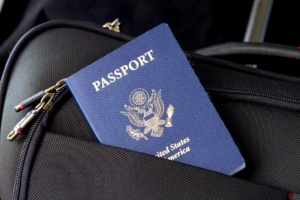
You may be contemplating the relocation of your child after divorce in Singapore. However, there are many issues which need to be addressed. Relocation of your child after divorce is not as simple as buying a plane ticket for him/ her and leaving Singapore. You will need to obtain permission for the relocation of your child after divorce. Simply leaving Singapore with your child may constitute parental child abduction in Singapore.
Whose Permission Is Required?
You will need the written consent of your spouse/ ex-spouse. If your spouse/ ex-spouse does not consent to the relocation of your child after divorce, you will need the consent of the Court in the form of a Court order.
This is even if you have custody of your child. Having custody of your child does not automatically entitle you to relocate with your child after divorce. You may take your child out of Singapore for a short period of time of less than a month (e.g. for a holiday or school trip). If you are seeking a permanent relocation of your child after divorce, you should seek the appropriate consent.
How Will the Court Make a Decision on the Relocation of Your Child After Divorce?
The Court’s paramount consideration is the welfare of the child. The focus is on the best interests of the child, not the parents. The Court will consider the following factors when making a decision:
1. The motivation of the relocating parent. If the intention of the relocating parent is to separate the other parent from the child, the relocation application will not be granted.
2. Is the relocation in the primary interest of the child? For the relocating parent, the motivation to move may be better job prospects or an overseas marriage union. In such cases, the Court may be less inclined to grant the relocation application relative to a case where the relocation is primarily in the child’s interests. However, in such cases, if it can be shown that the relocation is still in the best interests of the child, the Court may allow the relocation of your child after divorce. For instance, the relocation will be highly beneficial for the child’s education and training.
3. The effect on the child if he/ she is unable to have frequent access to the non-relocating parent. If the non-relocating parent is very close to the child, there may be a huge negative impact on the child if the relocation application is granted. The chances of success of a relocation application in such a case will be lower.
4. How will the child keep in touch with the non-relocating parent? If the relocating parent has a detailed and adequate plan on access, the chances of success will be higher. For instance, the relocating parent may have plans for ample face-time and phone access. He/ she may undertake to bring the child back to Singapore during school holidays. The financial means of the non-relocating parent will also have an impact on whether he/ she has the means to go overseas to have access to the child.
5. Time-span of the intended relocation. If the relocation is not permanent, and the relocating parent is able to ensure that the child’s interest and education are not compromised, there may be a higher chance of success.
6. Child’s familiarity of new location. If the child is not familiar at all with the new country (and in some cases, does not even understand the primary language in that country), the chances of success may be lower given that the child may be used to the educational system and lifestyle in Singapore.
7. Presence of family support in new country. If the relocating parent has excellent family support in the overseas country, the chances of success will increase.
8. Child’s wishes. The child’s wishes will be taken into account, if he/ she is of an age to form an independent opinion.
9. National Service Enlistment. If the intention of the relocating parent is for the child to evade his national service duties, the chances of success of a relocation application will be lower.
10. The parents’ feelings will be taken into account to the extent that it has an impact on the child.
11. Separation of siblings if one sibling is left in Singapore and the other sibling is relocated overseas. The Court will not find such a situation to be ideal.
What if You Relocate with Your Child Without Consent?
In such a case, you may be guilty of parental child abduction in Singapore. This constitutes a criminal offence.
Under Section 131 of the Women’s Charter, your spouse/ ex-spouse is able to make an injunction application to prevent you from taking the child out of Singapore if he/ she has sole custody or sole care and control of the child. An injunction application can be taken out during or after the divorce proceedings.
Your spouse may also make an application under the Hague Convention on the Civil Aspects of International Child Abduction to request for the return of your child.
You may wish to contact us at +6598330314 (whatsapp) if you are facing a relocation application.
Our price list can be found here.
Related articles can be found here.

